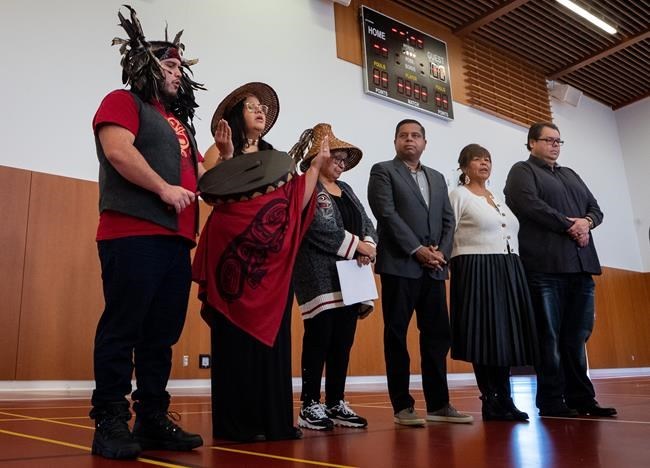OTTAWA — Legislation to create a new oversight body tracking Canada's reconciliation efforts has passed a final vote in Parliament.
The House of Commons unanimously agreed to adopt a final version of the bill as amended by the Senate.
The soon-to-be-enshrined law would create a council of 13 directors to oversee Ottawa's progress towards reconciliation with Indigenous Peoples.
Most of them are to be appointed by the minister of Crown-Indigenous relations and a transitional committee, but each of three national Indigenous organizations will also get a seat.
Inuit Tapiriit Kanatami president Natan Obed says if his organization had any say, Inuit wouldn't have to participate on the council.
He says he believes it will be a powerless bureaucratic body that could allow the federal government to sidestep Indigenous organizations and existing agreements.
"What's confusing to ITK is the government is trying to pursue both agendas: one of a rights-based distinctions approach and another woefully out-of-date pan-Indigenous approach that will empower individuals to speak on behalf of people when there are rights-holding institutions that democratically do that," he said in an interview.
"It's an old way of colonial interactions between the nation-state and Indigenous Peoples, and it's unfortunate what we were powerless to stop it."
The Métis National Council and the Assembly of First Nations can also appoint representatives to the council.
The government legislation seeks to fulfil a call to action from the Truth and Reconciliation Commission.
It called for the creation of the body and annual reports on the "State of Aboriginal Peoples," which would detail how the federal government intends to achieve its goals.
Crown-Indigenous Relations Minister Gary Anandasangaree said the council is a "historic step," and his government is "making meaningful change, moving towards healing and advancing accountability to the goal of reconciliation."
The legislation is expected to receive Royal Assent on Tuesday.
This report by The Canadian Press was first published April 29, 2024.
Alessia Passafiume, The Canadian Press




